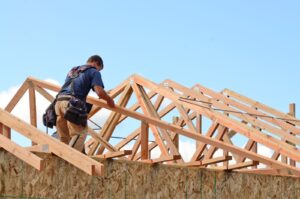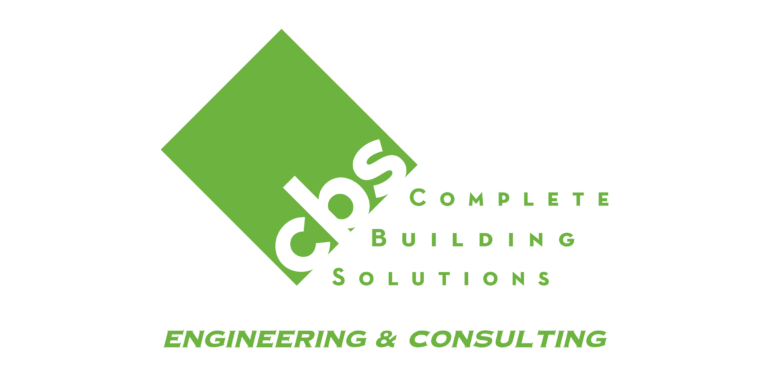There are many reasons you may need a home foundation inspection; cracks, crumbling, shifting, water intrusion, uneven floors, and the list goes on. Some of these issues may be minor while others more sinister in nature, possibly even being categorized as structural concerns.
Luckily, in-depth home foundation inspections are performed by licensed structural engineers with special training in recognizing and providing solutions for structural issues.
If you have found yourself wondering if a home foundation inspection is necessary in your circumstances, this blog is for you.
We will go over what a home foundation inspection is, what it costs, who to hire, and so much more.
What is a home foundation inspection?

A home foundation inspection is performed by a licensed structural engineer and entails an in-depth inspection of the foundation itself and an analysis of the findings.
We all know what a foundation crack is, right?
Well, structural engineers don’t just look at a singular foundation crack and jump to conclusions. They analyze why specific movement could be occurring within the foundation and provide solutions to prevent further damage.
Some issues are purely cosmetic, some require a bit of repair while others may need a complete overhaul. This is the huge benefit of having a home foundation inspection. Your engineer will tell you exactly what is going on with your specific situation.
What is included in a home foundation inspection?
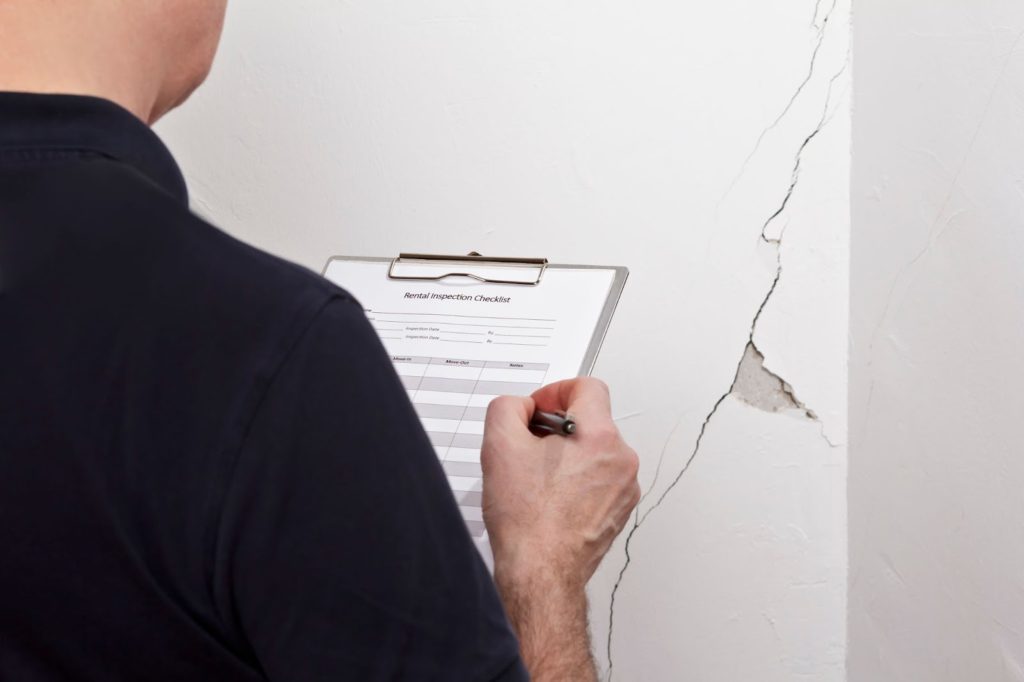
Visual inspection-
We cannot speak for every structural engineering firm out there. However, typically, structural engineering firms will send an engineer to your home. The engineer will visually inspect the foundation and other components of the home they find necessary.
Keep in mind that the biggest culprit for foundation issues is water. Therefore, do not be surprised if your engineer thoroughly inspects your gutters, downspouts, and landscaping. If you have a basement or crawl space, they may also need to take a look inside to inspect the condition of the interior foundation walls or check for moisture intrusion.
Note- Let the structural engineer know ahead of time if your basement/crawl space is hard to access. Also, use this time to ask the structural engineer any questions you may have.
Report & communication-
Once they have gathered all the data they need from the visual inspection, they may be able to provide you with some verbal information immediately.
Sometimes the problem or lack thereof will be fairly straight forward. Other times, they may need to bring their information back to the office for them to perform their analysis.
Either way, most engineering firms will provide the client with a written report or letter stating their findings. They may also provide the homeowner with possible solutions to the problem.
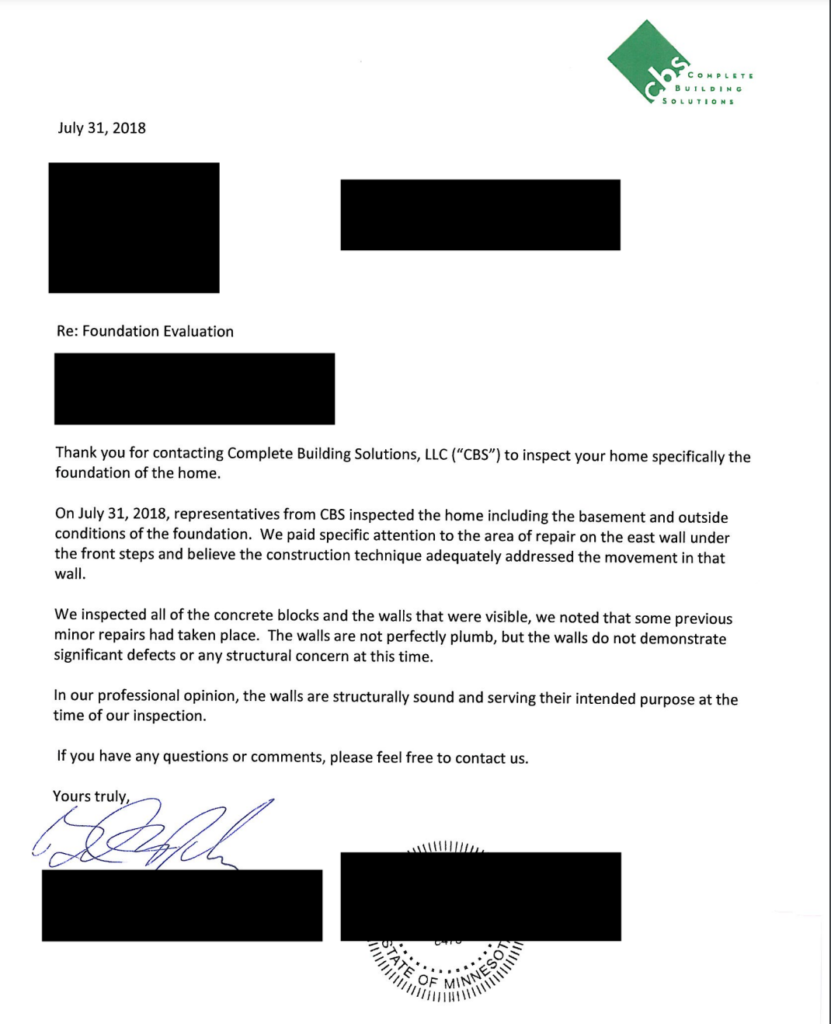
Structural engineers do NOT perform any physical work on structures so their analysis should be unbiased. They will simply state the problem, why it’s occurring and how to fix it.
Scopes of work can be provided typically upon request (and usually for additional costs). A scope of work can be used by your contractor to perform the work a specific way.
Note- Before an engineer performs an inspection on your property, be sure to inform the reason you are doing so in the first place. This may help you to save some cash. For example, if you need a structural engineer to sign off that a foundation is structurally sound in order to obtain a bank loan, the engineer may be able to write a short letter versus a lengthy report. Since most structural engineers work by the hour, this could help the pocketbook.
Why are home foundation inspections necessary?
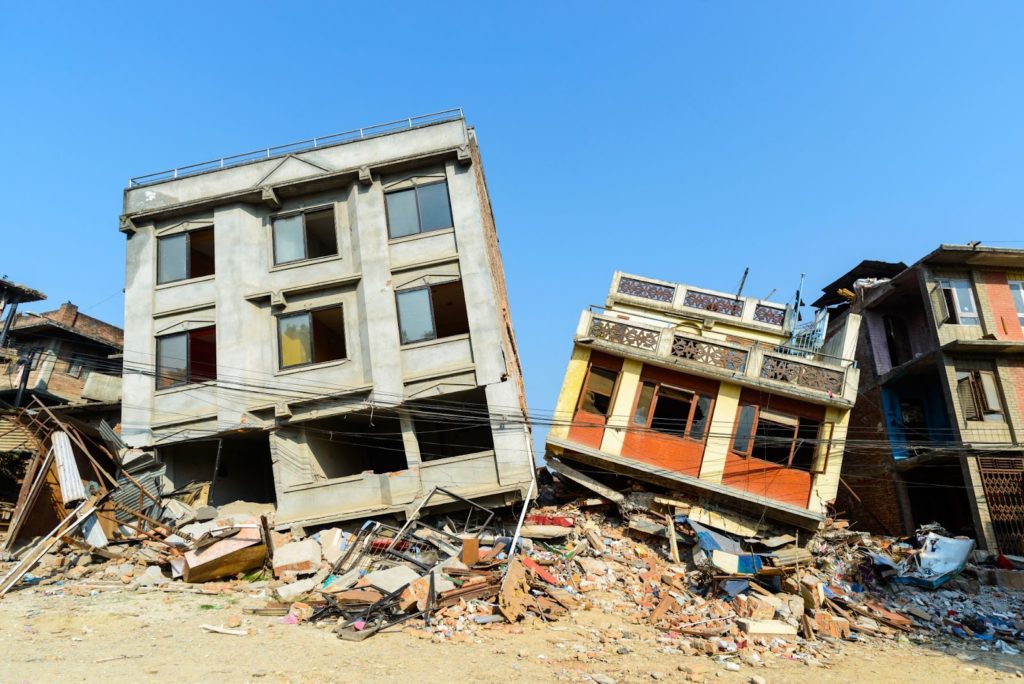
Foundation inspections are extremely helpful (and sometimes required) in various situations. Let’s look through a few different lenses to get a better understanding of the benefits of a home foundation inspection.
Remodels-
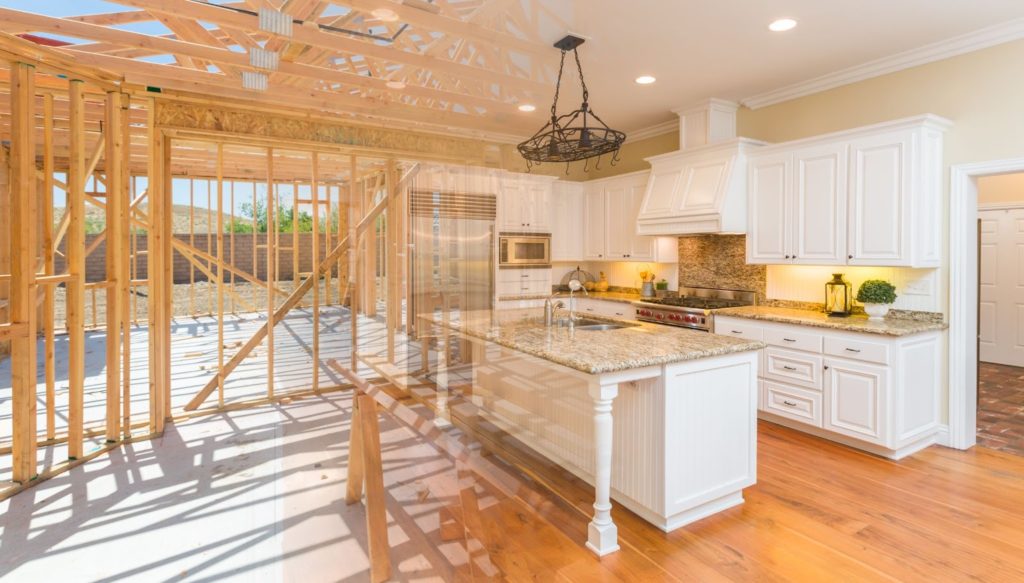
Foundation inspections can be crucial to understanding the structural integrity of your home. If your foundation is weak, your home could literally fall down. This is why it’s important to have an engineer involved during remodels, especially additions where you build up.
Can you imagine building an additional level on a home with a foundation that was barely supporting the existing structure?
Yikes.
This example alone shows how important the “bones” of your home really are.
Home flippers-
Look at home flippers. They would never knowingly buy a property with a bad foundation. Why? If you get in deep on a property with a foundation requiring serious repair…you’re going to lose money.
Foundations with structural issues are just not cheap to fix. That’s why so many home flippers pay the money for a home foundation inspection before making a purchasing decision. The $500 ish dollars it may cost for the inspection could save them THOUSANDS.
Obtaining bank loans-
On another note, there may actually be times when you need a home foundation inspection in order to obtain a loan from a bank. We’ve seen this happen when home inspectors have flagged a foundation in their report. Banks may actually not finance you until a structural engineer steps in and confirms that the foundation is sound. This is a pretty drastic situation and does not happen everyday, but we do see it.
Water intrusion-
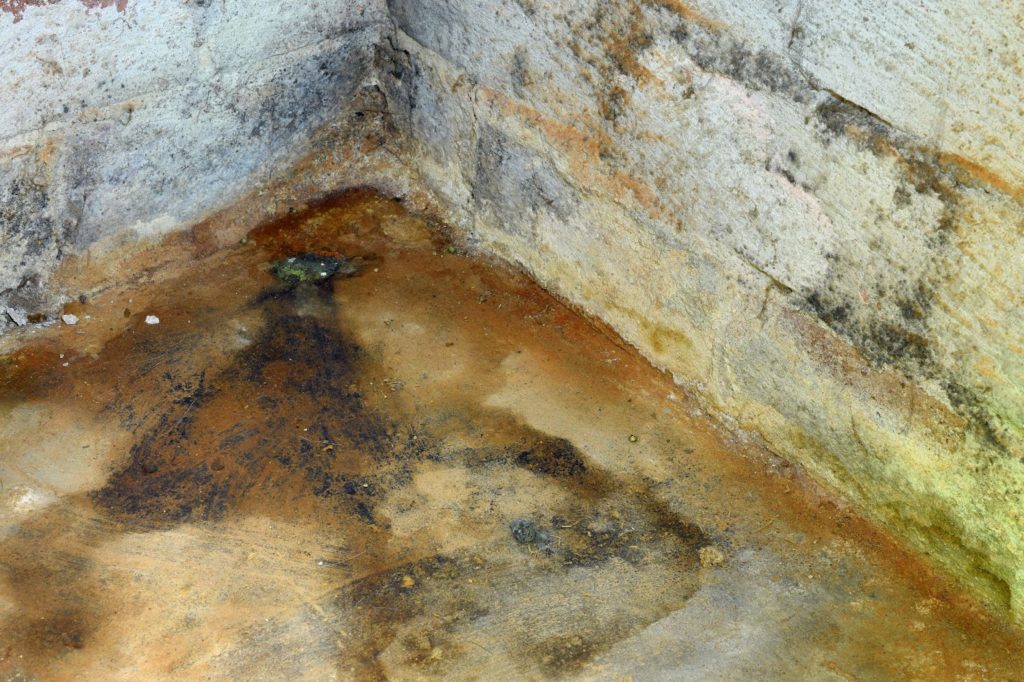
If you are dealing with a basement that is constantly getting wet, something needs to be done with the foundation. As we’ve mentioned before, water is enemy #1 to your home’s foundation. A structural engineer will be able to assess any damage that has been done and provide you with repair options and solutions to halt the water issue.
You may be wondering what kinds of solutions could be suggested. Most likely a water management system will need to be implemented. This could start as simple as making sure gutters, downspouts and extensions are functioning properly. The next big hitter for keeping moisture away from the foundation is to ensure the grade around the foundation slopes water away. If water is pooling around the house, that in itself is the issue. To learn more on this topic, click here.
Settlement, uneven floors and doors that won’t shut-
We get complaints on this one all the time. These kinds of issues could simply mean that you live in an old house or it could be due to a larger issue.
Why do we expect settlement in older homes? The answer is simple. Older homes weren’t designed to deal with deflection the way modern homes are. Now it’s a different story if the settlement is getting worse over time.
If you notice new settlement in your home, it’s a good idea to have a structural engineer come take a look. Sometimes this type of settlement can indicate structural changes or non-optimal interior humidity levels.
Could these possible structural changes be due to a shifting foundation? Possibly, yes. A structural engineer would thoroughly inspect your foundation and the grading on your property to determine if the issue is originating there.
If they do not see issues with the foundation, there could be other reasons for new settlement such as high humidity in the home or weakened joists. Usually you won’t find joists failing unless changes have been made to the home which exceeded the current structural system’s load capacity.
For instance, if you recently installed granite countertops or purchased a large piano or fish tank without first hiring a structural engineer to ensure the home could tolerate the loads, you could be running into issues.
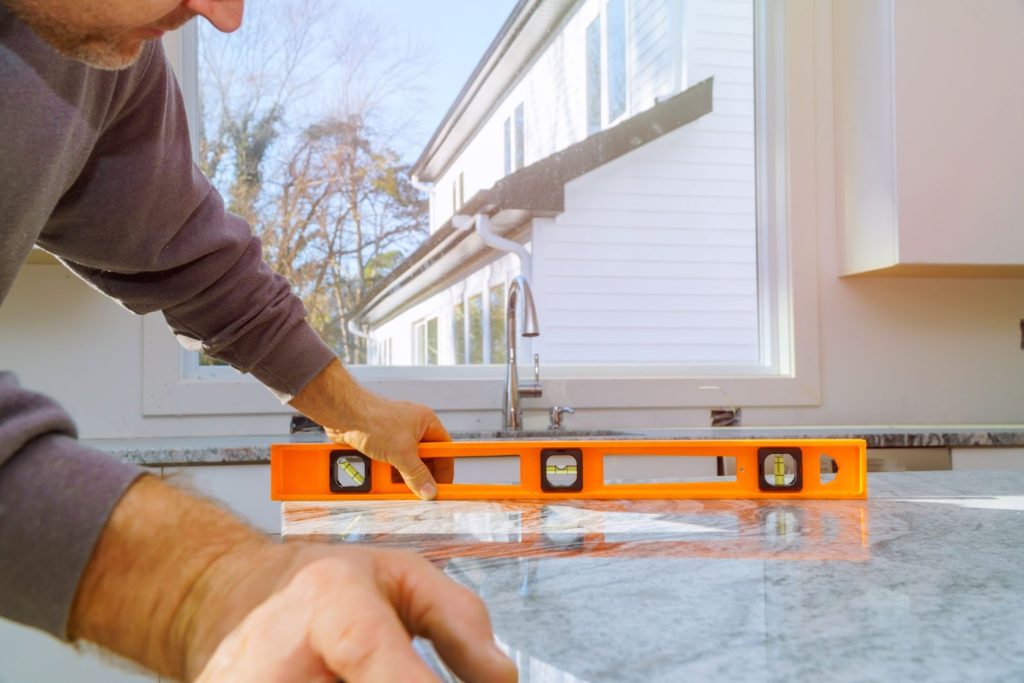
One final thought on settlement relates to construction defect. New homes truly should not have settlement. However, if homes were built incorrectly or on wet soils, settlement will most likely occur.
We’ve had a few clients over the years who have had to deal with this headache. Many people can live with a few settlement cracks but when the entire house is riddled with issues, it’s just not acceptable.
Usually the problem was incorrect building technique alongside incorrect backfill soils. It’s important that red rock aggregate or conbit style backfill is used when building homes. Otherwise expansion and contraction of soils that hold moisture will put pressure/uplift on your home causing cracking, sagging, and jammed doors/windows.
When is a home foundation inspection an emergency?

It’s common to need a home foundation inspection. However, not all of those situations are emergencies. For example, a foundation crack will not grow exponentially overnight (unless a traumatic event occurs such as an earthquake). These things take time.
There are times when acquiring a home foundation inspection is paramount and very time sensitive. Usually, this is due to a natural disaster or building mistake.
Some examples of this could be:
- Earthquake
- Flooding or hurricanes
- Sinkholes
- Tornado
- Building hit by a vehicle or machinery
- Load bearing wall accidentally removed
- Other structural component of home accidentally removed
If a natural disaster has caused your home’s foundation to shift or if you removed a structural component in your home and noticed sagging, cracking or bowing walls, call a structural engineer immediately! Let them know the urgency of the situation so they can hopefully move their schedule around to see you sooner.
Get a free quote on your project!
Ready to start your project? Reach out to Complete Building solutions and get a quote absolutely free.
Do home inspectors check foundations?

Traditional home inspectors will look over a foundation. They check for cracking, moisture intrusion and signs of degradation. Good home inspectors will even examine and make notes upon the grading around your house.
If a home inspector notices any signs of concern with the foundation, they will recommend that you have further evaluation by a structural engineer. Licensed professional engineers are trained to look for structural anomalies and design solutions for these problems.
There are times when a structural engineer may be required to obtain building permits, secure bank loans or even to bring confidence to home buyers before they move forward with a purchasing decision.
Home Foundation Repair Solutions-
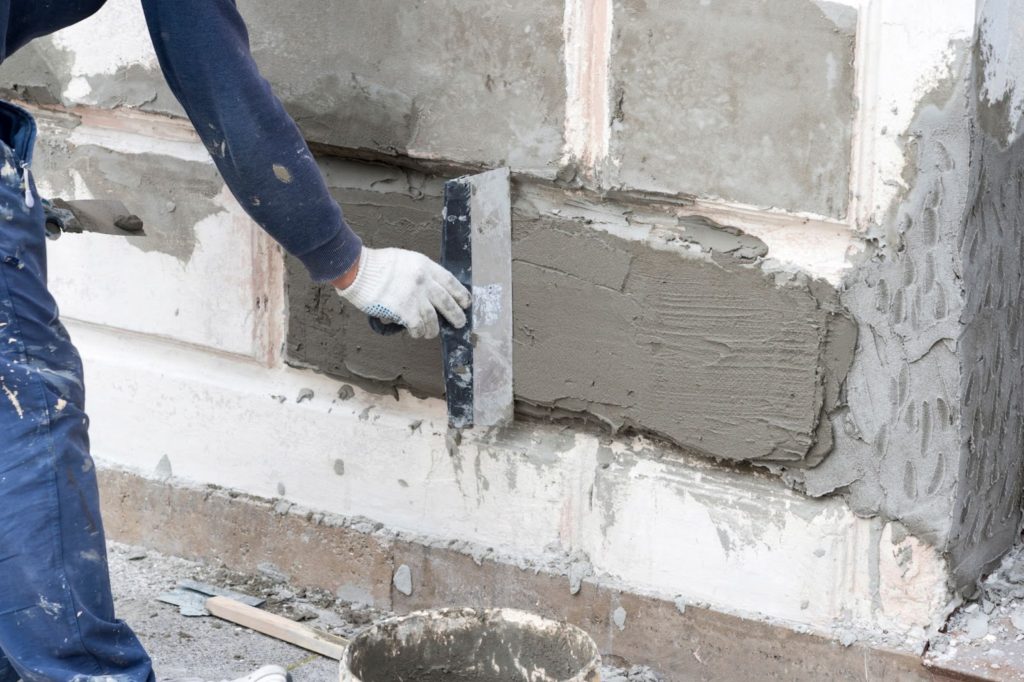
This blog was not written to go into huge detail about foundation repair options, but we will touch upon the subject a bit.
Foundation drainage: gutters, downspouts, extensions & grade
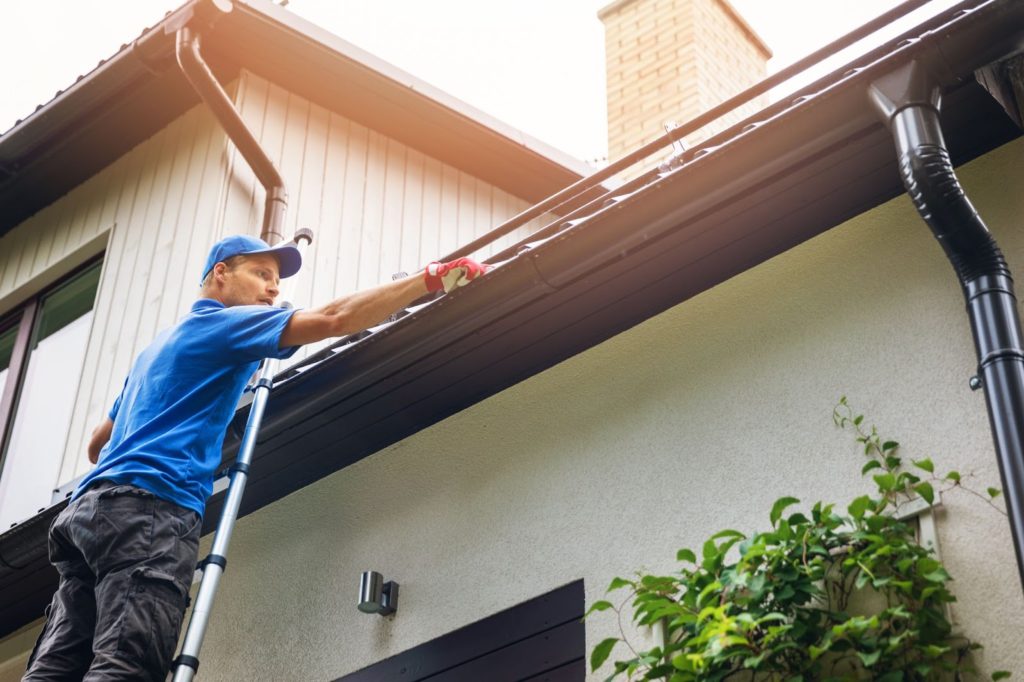
If you are dealing with moisture intrusion issues or foundation cracking and shifting, there’s a good chance the issues can be halted with the implementation of a good water management system (depending upon the damage that has occured and any other unforeseen issues like underground springs).
In a nutshell, a foundation water management system includes functioning gutters, downspouts/extensions and correct grading and soils around the foundation. Every component of a water management plan strives to drive water away from your house.
Because, again, water is your home’s worst nightmare. If you keep it away from the foundation, less cracking, shifting, and heaving will occur.
It’s a fact.
So, you can see why gutters are important.
What about the grade? Many people do not know what we mean by this.
Think about your foundation. Is it at the bottom of a hill? Does the landscape dip low next to the foundation allowing water to pool up? If so, this needs to be addressed ASAP.
The International Residential Code calls for at least a 6” drop in elevation within the first 10 feet of the foundation, walkways, and driveway.
This means that the elevation is highest next to your foundation and the grade slopes enough to lead water away from the perimeter of the home.
This is called a positive slope and helps to prevent water from standing around the foundation.
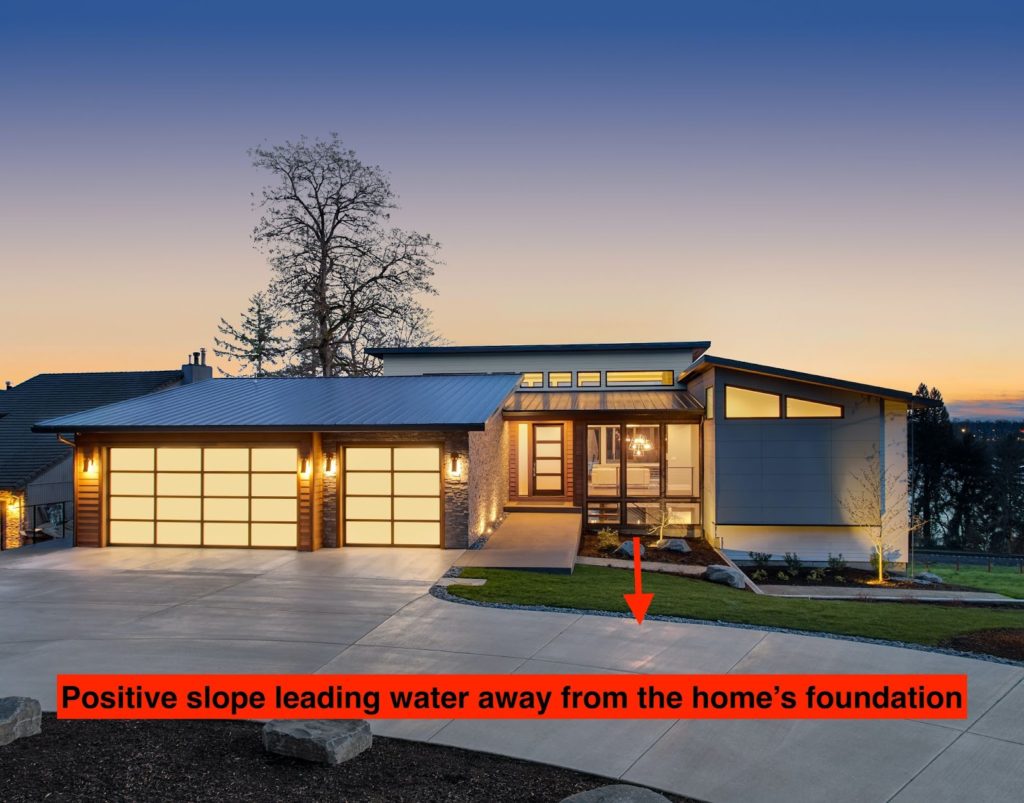
What you DON’T want is grading that invites water towards the foundation like in the photo below. Remember, water travels the path of least resistance. Since, the soil in the photo below slopes toward the foundation, it’s the easiest pathway for water to take.

The photo below shows another disastrous situation. A negative grade is present. There is a gutter and downspout, but the extension is too short. On top of these problems, a landscape border is holding any water dumped by the downspouts right where we don’t want it…next to the foundation.

Proper backfill soils-
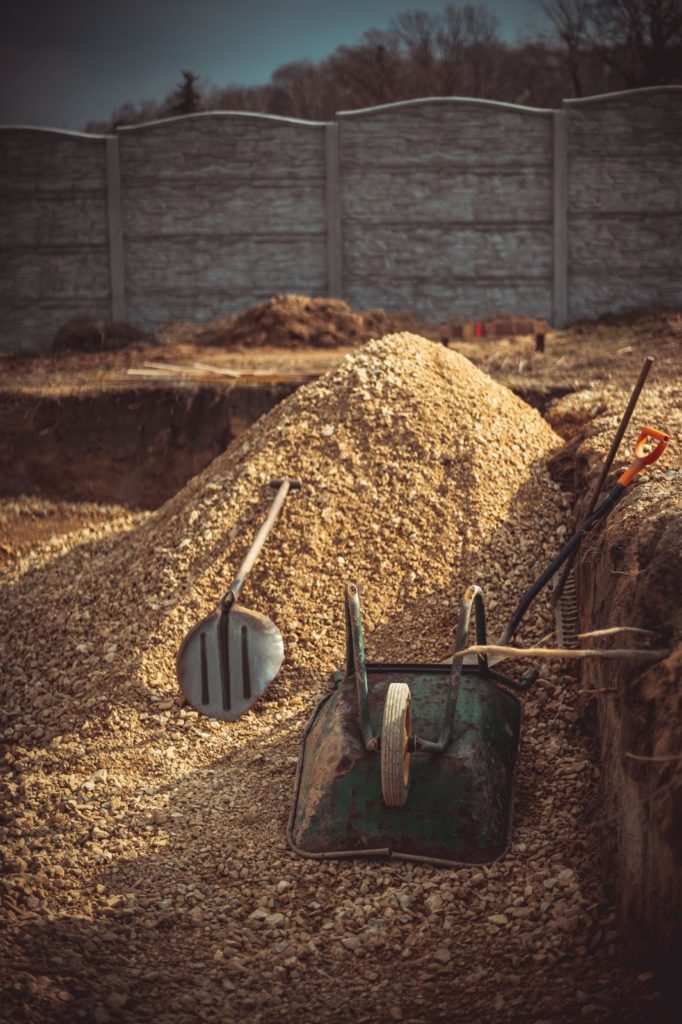
We’ve already talked about soils a bit and know that some soils are wet by nature…clay for one. Clay’s tiny particles make it easy for it to retain water. When clay is saturated, it expands greatly.
Now, imagine clay soils were sitting next to your foundation walls. Perhaps your town has a very rainy summer or you have a downspout dumping water next to your home.
Those clay soils will absorb the water and the soil will expand, exerting forces upon your foundation walls. When winter comes, these soils will freeze, the soils will expand further, and more pressure will build on the walls. When the frozen ground thaws, the soils will shrink and your foundation will be susceptible to heaving.
Not good.
So, what’s the solution here? Well, hopefully your home’s subsoil is not clay, but rather conbit or red rock gravel. See the chart below.
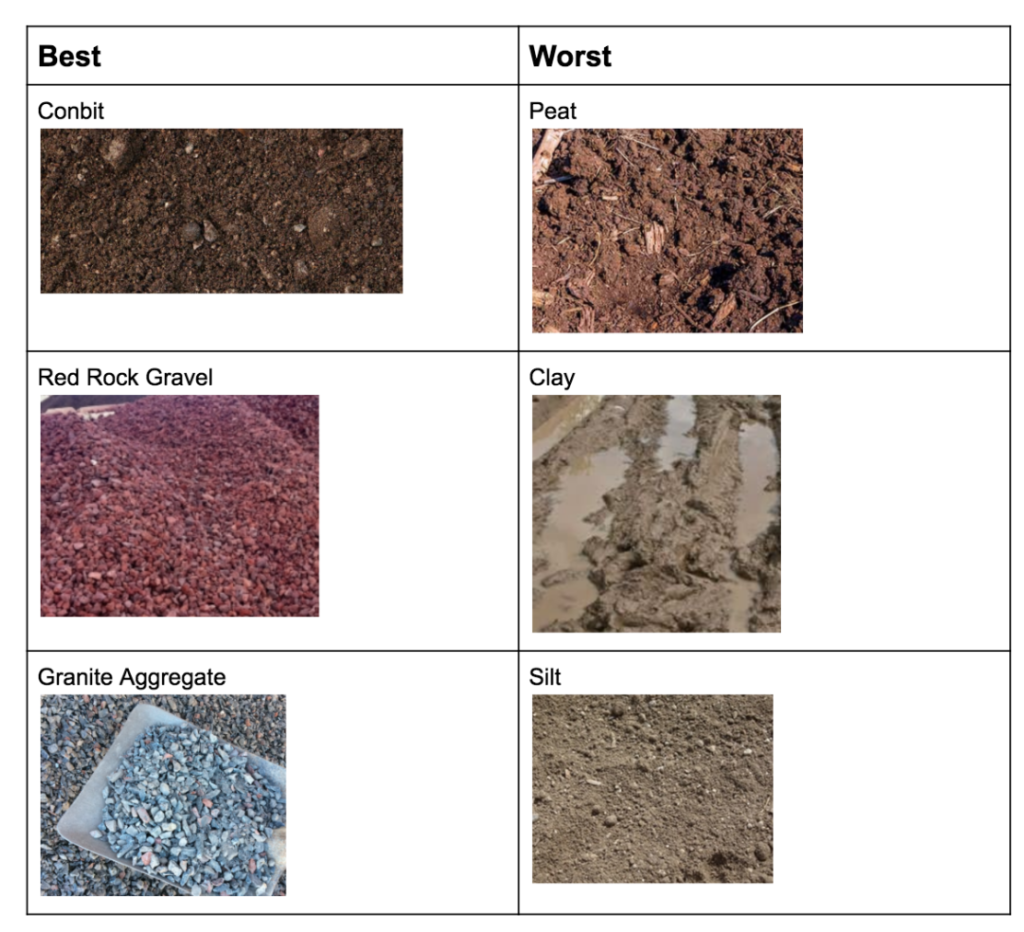
The soils in the chart above are categorized based upon the best and worst substrates for backfill.
If you know your home was built upon wet soils, some structural or geotechnical engineers may have some ideas for helping you cope with the plethora of issues you’re most likely experiencing.
If your engineer does not have a bandaid for your situation, the next step would be a soil correction. This means the old soils are removed and proper ones are put in its place.
And yes, this is expensive and messy. But, sometimes it’s the only option for a permanent fix.
Solutions for bowing foundation walls-
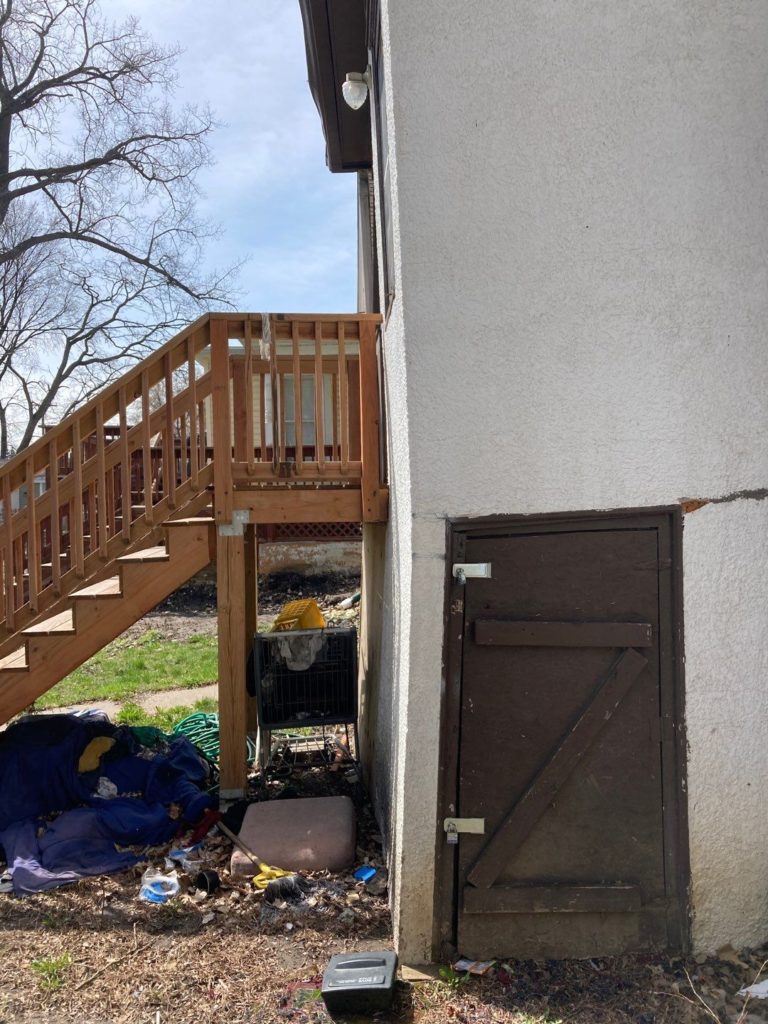
There are several solutions for strengthening a bowing foundation wall. The right solution should be recommended by your structural engineer. Remember, the solutions we are about to mention support the wall, but do not solve the root cause of the issue (ehhh hemm, water).
We will just briefly mention a few possible solutions your engineer could request (for a more in depth read on this, click here.):
- Carbon fiber straps- This is a great option when your foundation’s wall has bowedf under 2 inches. These straps are easy to install and more pocket book friendly than other options.
- Wall anchors- This option entails trenches in your yard with threaded rods that run through the exterior foundation wall and attach into your basement. The tension from these “anchors” supports the wall. This option is significantly more expensive than carbon fiber straps because of the excavation costs.
- Helical tiebacks- This option shoots screw-like shafts (helical tieback) through the foundation wall and into the outside earth. Although there are no excavation costs, each helical tieback will cost about $1,600-$1,700 a pop.
Solutions for foundation cracks-
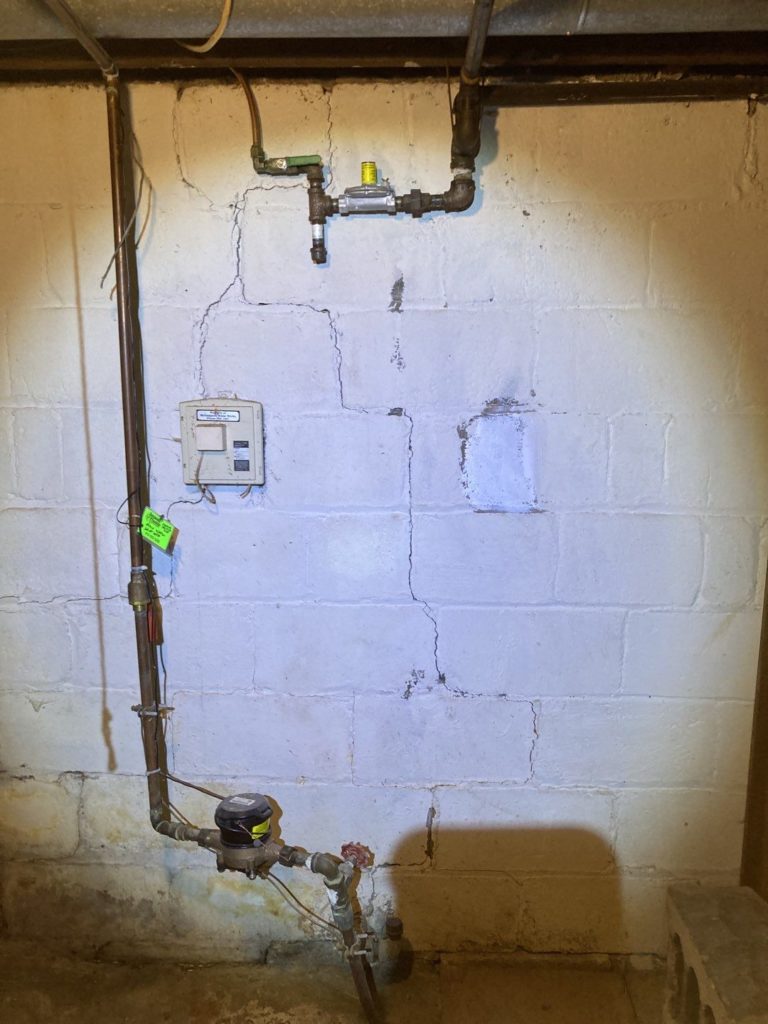
If your home inspector or home foundation structural engineer recommended a foundation crack to be repaired, here’s what they may suggest.
Usually, an engineer would suggest filling cracks with a concrete epoxy. In areas showing deflect off the block, a concrete mortar mix may be necessary to fill voids.
Here’s a step-by-step guide on this.
Read on to learn about home foundation inspection costs and a rough idea on repair costs.
What does a home foundation inspection cost?

Home foundation costs are well worth the money spent. I’ll explain why.
Most structural engineer home foundation inspections will cost you between $400-$700.
Vs.
Foundation repairs could cost anywhere from $500-$40,000 to fix.
Are you really going to buy a property with a failing foundation that could cost thousands upon thousands of dollars to fix?
Of course not. And, if the problem was salvageable, you could negotiate on price a bit to make up for repair costs.
Curious about foundation repair costs? Let’s touch on this a bit.
Implementing a water management system would cost you in supplies like gutters, downspouts & extensions (installation fees as well). Many homeowners are capable of creating a positive slope around their home. This can be done with a shovel and a rake.
Using epoxy to fill foundation cracks may cost under $500.
Helical tiebacks (as mentioned before) cost $1,600-$1,700 per tieback. If you need 5 you’re looking at $8,000-$8,500.
Carbon fiber straps cost $600-$700 per strap. If you need 5 straps you’re looking at $3,000-$3,500.
Wall anchors cost $800-$1,000 each. Structural engineers may call for an anchor to be installed every 5 feet along a bowing wall. How long is the wall in question? Do the math there.
Mudjacking slabs could cost anywhere from $300-$2,400.
Hydraulic piers cost anywhere from $1,300-$2,400 each depending on if the piers can be dug by hand or machine. Most homes need about 8-10 piers costing anywhere from $10,400-$24,000.
Remember, most of the issues mentioned above are not root cause issues. They are the result of poor water management or other lurking moisture issues. Sometimes the solution to stopping further damage is a soil correction.
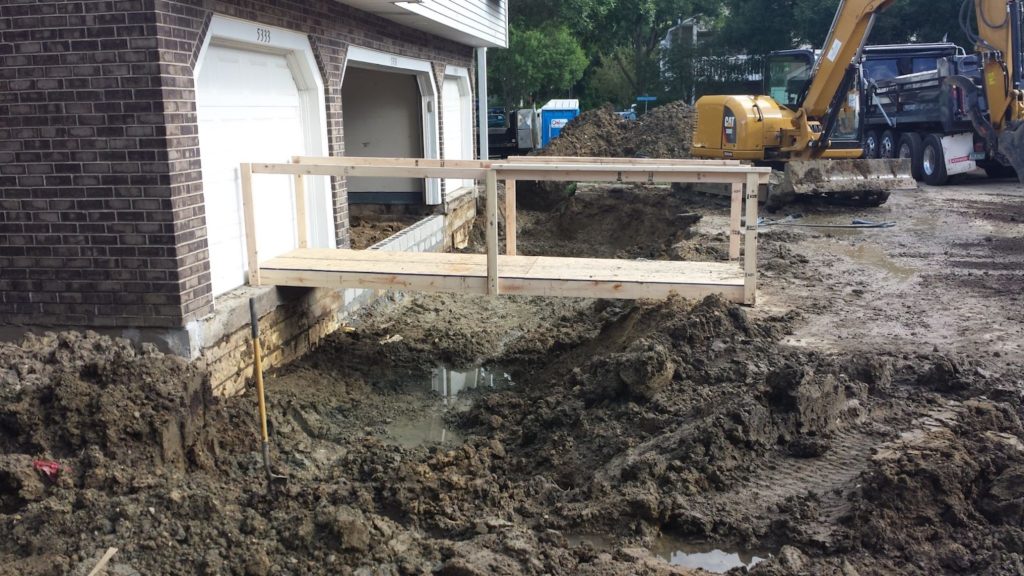
Soil corrections (removing current soils around the home and replacing them with correct soils) can cost upwards of $20,000 at times. There are so many factors involved in this type of situation that it’s really hard to say. Sometimes underground springs or neighboring property grading issues factor in here as well.
There are other solutions for drying up properties (one example is a rain garden) as well. To learn more about these, click here.
We hope breaking down these numbers helps you to get a better feel for the costs involved in foundation repairs. If anything, having a home foundation inspection performed can bring peace of mind knowing that no sinister issues are lurking beneath the soil.
Who to hire for your home foundation inspection?

Here’s the thing, by the time a person is ready to have a home foundation inspection performed, they typically already know they need a structural engineer.
This is usually because of one of the following situations: a) a traditional home inspector requested further evaluation to be done by a structural engineer b) a bank requires a structural engineer’s sign off before releasing a loan or c) a city building department is requiring it in order for building permits to be obtained or d) a homeowner simply wants peace of mind that their foundation is structurally sound.
So, with that being said, where does one find a structural engineer to perform the inspection?
- Referral- Referrals are always great. Your home inspector, architect or contractor may have a relationship with a structural engineer they trust. It’s always a good idea to take advantage of this. Some city building department’s offer a list of local structural engineers as well. You could always check there.
- Search engine- If a referral is not an option, get online and search “structural engineer near me” or “structural engineer near [insert your city]”. You may find results that look something like this.
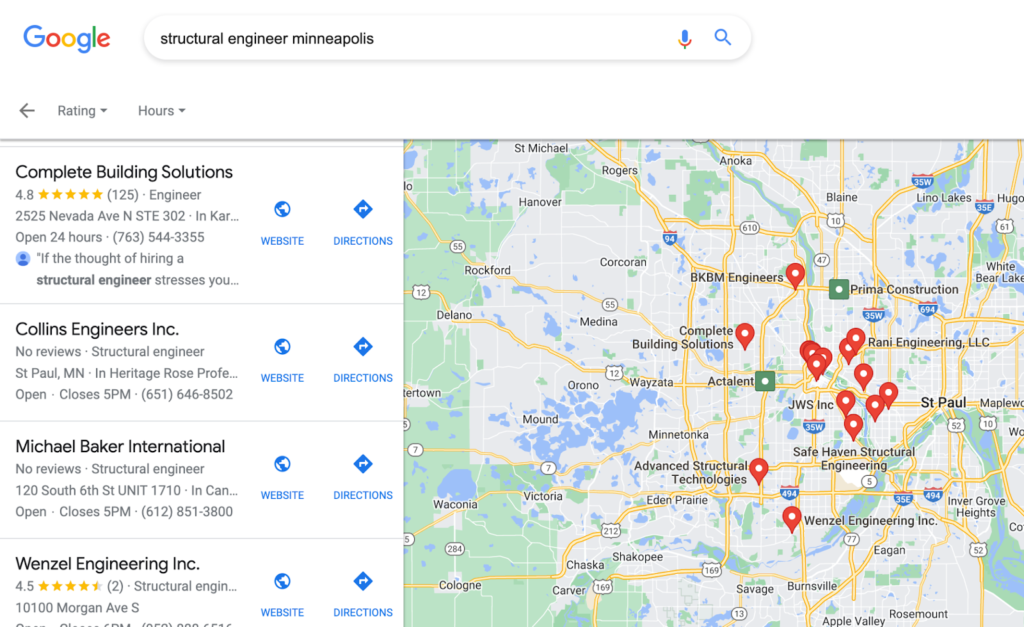
Some companies only do commercial construction and wouldn’t bother with a residential foundation home inspection. Scroll through various companies’ websites and definitely read the reviews. Usually you can find out all the information you need with a simple phone call. Simply ask the receptionist if their company performs structural foundation inspections.
- Avoid platforms like Angie’s List or HomeAdvisors- Conglomerates such as these (both of these platforms are owned by HomeAdvisor as of 2017) will ask for your personal information and release it to dozens of companies. So, unless you want a bunch of calls blowing up your phone, you’re better off doing a simple search on google.
Read on for a final recap of the benefits of a home foundation inspection.
The benefits of a home foundation inspection-
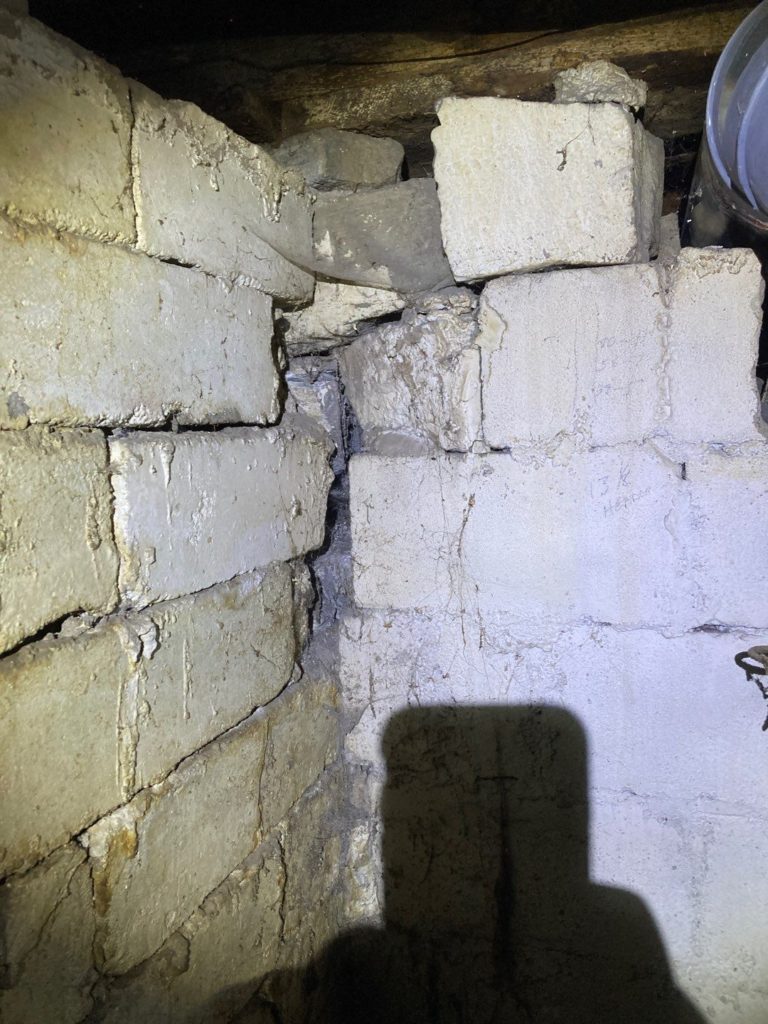
Before we bring this article to an end, let’s summarize the main benefits of a home foundation inspection.
- Brings peace of mind or clarity to buyers, sellers & homeowners alike
- Positive outcomes on inspections can improve home value
- Positive outcomes can make it easier to sell a property
- Helps save buyers thousands of dollars if issues do exist
- Helps buyers secure bank loans
- Provides useful information about proper water management and run off issues on your property
- Can find or stop mold growth ultimately preventing health problems
- Prevents structural damage from progressing if caught early
- Helps homeowners pull building permits
We hope you found this article helpful in understanding all that is home foundation inspections. If you have any further questions or concerns please feel free to call us at 763-544-3355.
